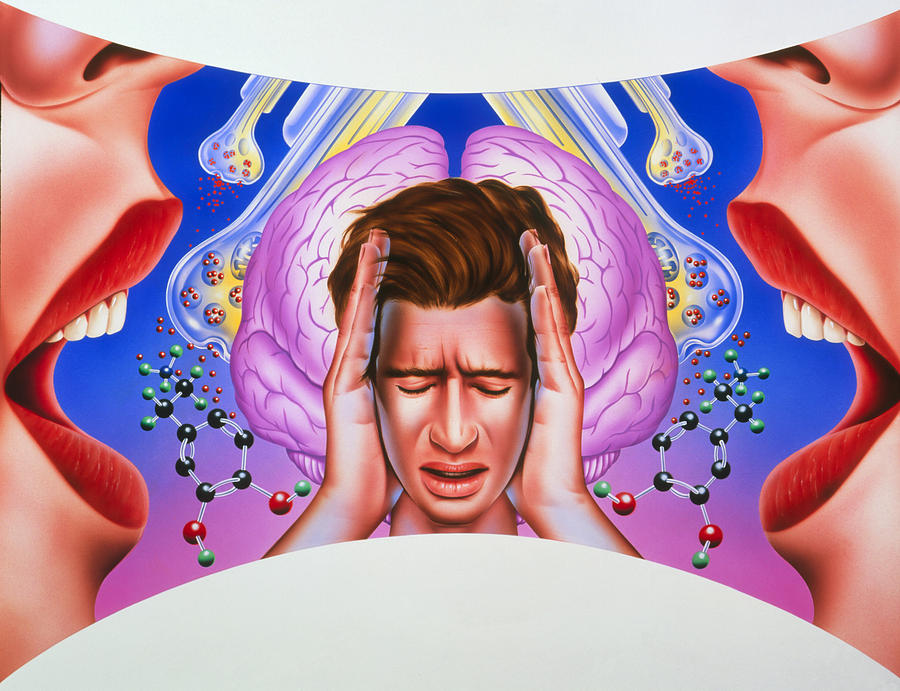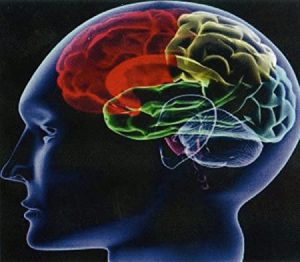Schizophrenia is a mental disorder characterized by abnormal interpretations of reality, including hallucinations, delusions, and disordered thinking and behavior. It can impair daily functioning and may require lifelong treatment. Early treatment can help manage symptoms and improve long-term outcomes.
Schizophrenia is characterized by various issues with thinking, behavior, and emotions. Common signs and symptoms may include delusions, hallucinations, or disorganized speech, which can impair one’s ability to function normally.
Symptoms

- Delusions are false beliefs that are not grounded in reality, such as thinking that you’re being harmed or harassed, that certain gestures or comments are directed at you, that you possess exceptional abilities or fame, that someone is in love with you, or that a major catastrophe is about to happen. Delusions are a common symptom in people with schizophrenia.
- Hallucinations in schizophrenia typically involve perceiving things that are not actually present, such as seeing or hearing things that don’t exist. These experiences have the same emotional intensity and impact as real ones, despite being unreal. While hallucinations can occur in any of the senses, hearing voices is the most prevalent type of hallucination in schizophrenia.
- Disorganized thinking in schizophrenia is characterized by disorganized speech patterns, which can impair effective communication. Answers to questions may be irrelevant, tangential, or partially related, and sometimes, the person may use unintelligible words, also known as “word salad.” The degree of disorganization can vary, but it often impairs social and occupational functioning.
You may also like
Psychopathy Provisional Diagnosis
Diabetes and Health Disparities
- In schizophrenia, extremely disorganized or abnormal motor behavior can manifest in various ways, ranging from childlike silliness to unpredictable agitation. This behavior is not goal-oriented and may interfere with the ability to perform tasks. Examples of such behavior can include resistance to instructions, exhibiting inappropriate or bizarre posture, displaying a complete lack of response, or engaging in excessive and non-purposeful movements.
- Negative symptoms in schizophrenia are characterized by a reduced ability to function normally, and can include neglecting personal hygiene, appearing emotionally unresponsive (such as lacking eye contact or facial expressions), speaking in a monotone voice, losing interest in everyday activities, social withdrawal, and an inability to experience pleasure. These symptoms can have a significant impact on the individual’s ability to maintain relationships, work, and participate in social activities.
The symptoms of schizophrenia can vary in type and severity over time, with periods of worsening and remission of symptoms. Some symptoms may persist even during remission. In men, symptoms of schizophrenia typically begin in the early to mid-20s, while in women, they typically begin in the late 20s. Schizophrenia is uncommon in children and rare in individuals over the age of 45. Early detection and treatment can help manage symptoms and improve long-term outcomes.
Causes
The exact cause of schizophrenia is unknown, but it’s believed that a combination of genetics, brain chemistry, and environmental factors may contribute to the development of the disorder.
There may be abnormalities in certain brain chemicals, such as dopamine and glutamate, and differences in brain structure and central nervous system have been observed in people with schizophrenia through neuroimaging studies. These changes suggest that schizophrenia is a brain disease.
Risk Factors
Additional risk factors for schizophrenia include:
- Significant stress or trauma during childhood or as an adult
- Social isolation and a lack of supportive relationships
- Older parental age
- Being male (men are slightly more likely to develop schizophrenia than women)
- Certain autoimmune disorders or infections that affect the brain
- Use of marijuana or other drugs in

Source: ontheline.org. adolescence or early adulthood
- A history of head injuries or other central nervous system (CNS) damage
- Certain genetic mutations or variations in genes that are associated with increased risk for schizophrenia.
Additionally, individuals with schizophrenia may experience difficulty managing their symptoms, which can lead to difficulty with daily living activities, and may require long-term care or hospitalization. They may also experience stigma and discrimination, which can further impact their quality of life.
Prevention
It’s worth noting that while there is no known way to prevent schizophrenia, early diagnosis and treatment can improve outcomes and prevent complications. Following the prescribed treatment plan, which may include medications and therapy, can also help manage symptoms and prevent relapses.
Treatment
Schizophrenia is a chronic condition, but it can be treated with a combination of medications, therapy, and support services. The primary treatment for schizophrenia is antipsychotic medication, which can help control symptoms such as hallucinations and delusions. Therapy, such as cognitive behavioral therapy (CBT) or family therapy can also help manage symptoms and improve overall functioning. Support services, such as vocational rehabilitation and housing assistance, can help individuals with schizophrenia live independently and improve their quality of life. It’s important to work closely with a healthcare provider to develop an individualized treatment plan that addresses specific needs and preferences.


